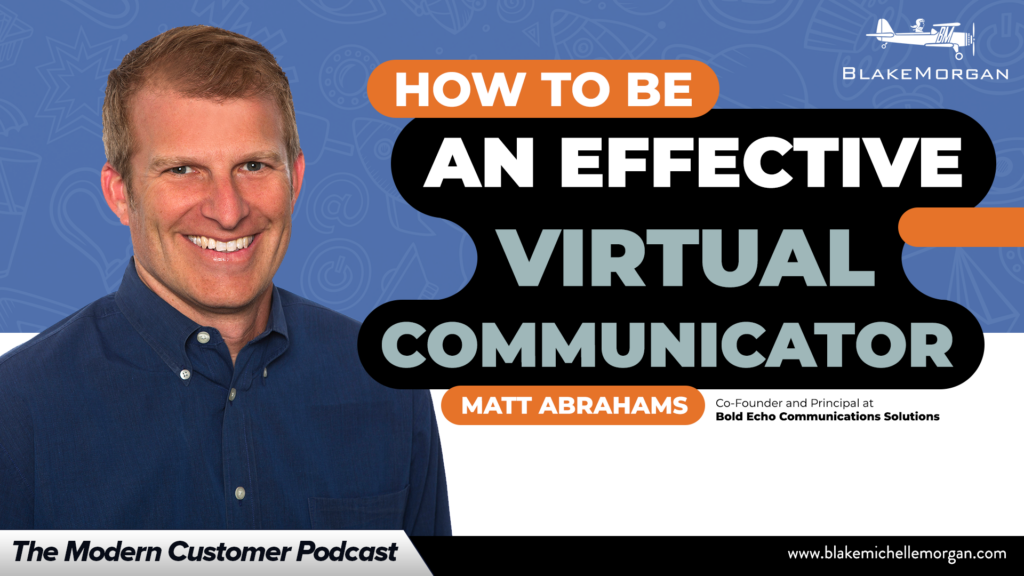A year ago, most of us were speaking in meetings full of team members or giving presentations to rooms full of people.
But those faces have now changed to boxes on a screen, and our messages have moved from in-person to virtual.
Being an effective communicator is a challenge on its own, but doing it virtually adds even more complications. According to Matt Abrahams, co-founder and principal at Bold Echo Communications Solutions, virtual communication only accentuates the challenges we’ve always had with public speaking. He says being an effective virtual communicator requires overcoming three challenges:
1. Getting and holding attention
2. Being clear and concise
3. Maintaining engagement
Attention is the most precious commodity in the world today. When people aren’t in the same room as the speaker, it’s much easier for them to get distracted. It’s up to speakers to hold their attention.
Many of these challenges can be addressed by focusing on your audience. Abrahams says too many people are fixated on what they want to say instead of thinking about what would be valuable to their audience. He says speaking without focusing on the audience is like writing a love letter and addressing it To Whom It May Concern.
Before preparing a speech or presentation, take time to reflect on who your audience is and what they need to hear. Once you understand your audience, you can structure your message to be clear and concise. Abrahams recommends structuring your communication to answer three simple questions:
1. What? Say what it is.
2. So What? Share why it’s important.
3. Now What? Teach what you can do with that information.
Understanding the audience and following a structure creates a speech that is clear, concise and on message. People are much more likely to pay attention to clear content that applies to them. Doing the work upfront to understand your audience and structure your presentation can help overcome all three of the virtual communication challenges.
Storytelling is also a valuable tool, especially for virtual communication. People connect with and remember stories far more than they remember statistics. Abrahams recommends having a goal for your story and telling it in six words. If you can convey your key point in six words, it can be your starting point for crafting a larger story. The best way to become a great storyteller is to practice and listen to other great storytellers.
Even after the pandemic has subsided, virtual communication is here to stay. Abrahams believes that in the future we’ll see a hybrid approach with both in-person and virtual speeches and presentations. Being a successful communicator in the future will require these strong virtual communication skills.
Blake Morgan is the bestselling author of The Customer of the Future. Sign up for her new course here.
For regular updates on customer experience, sign up for her weekly newsletter here.

